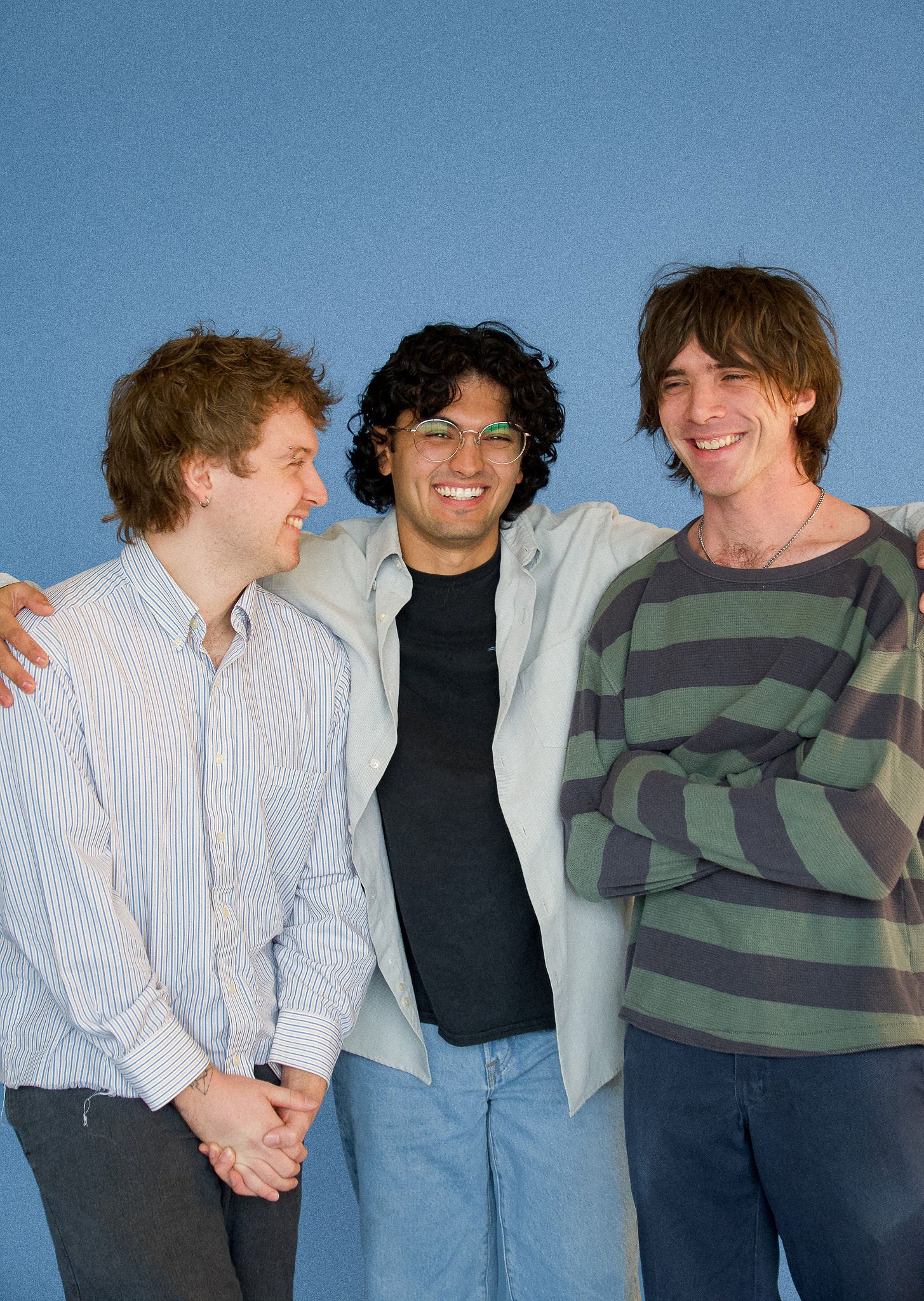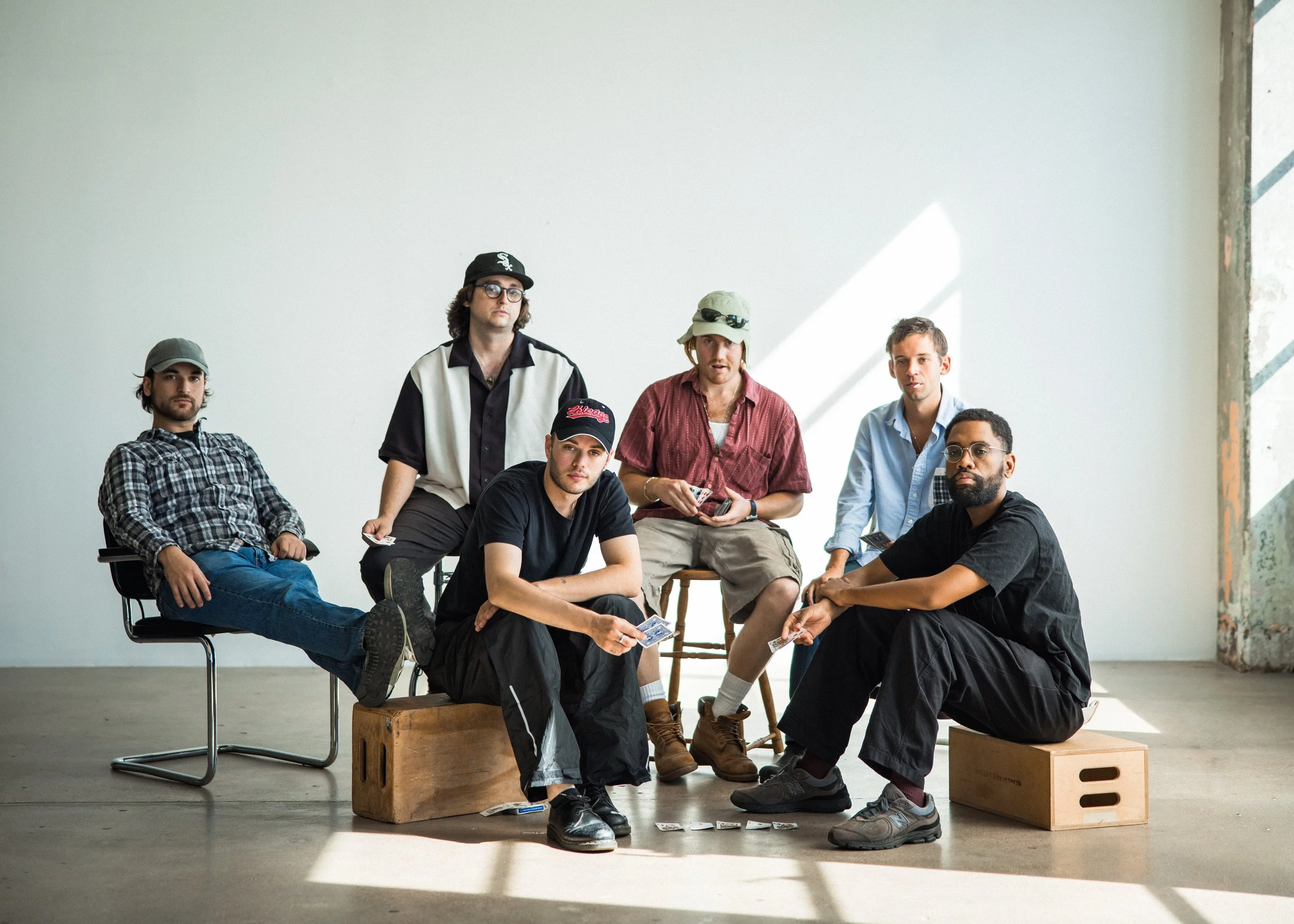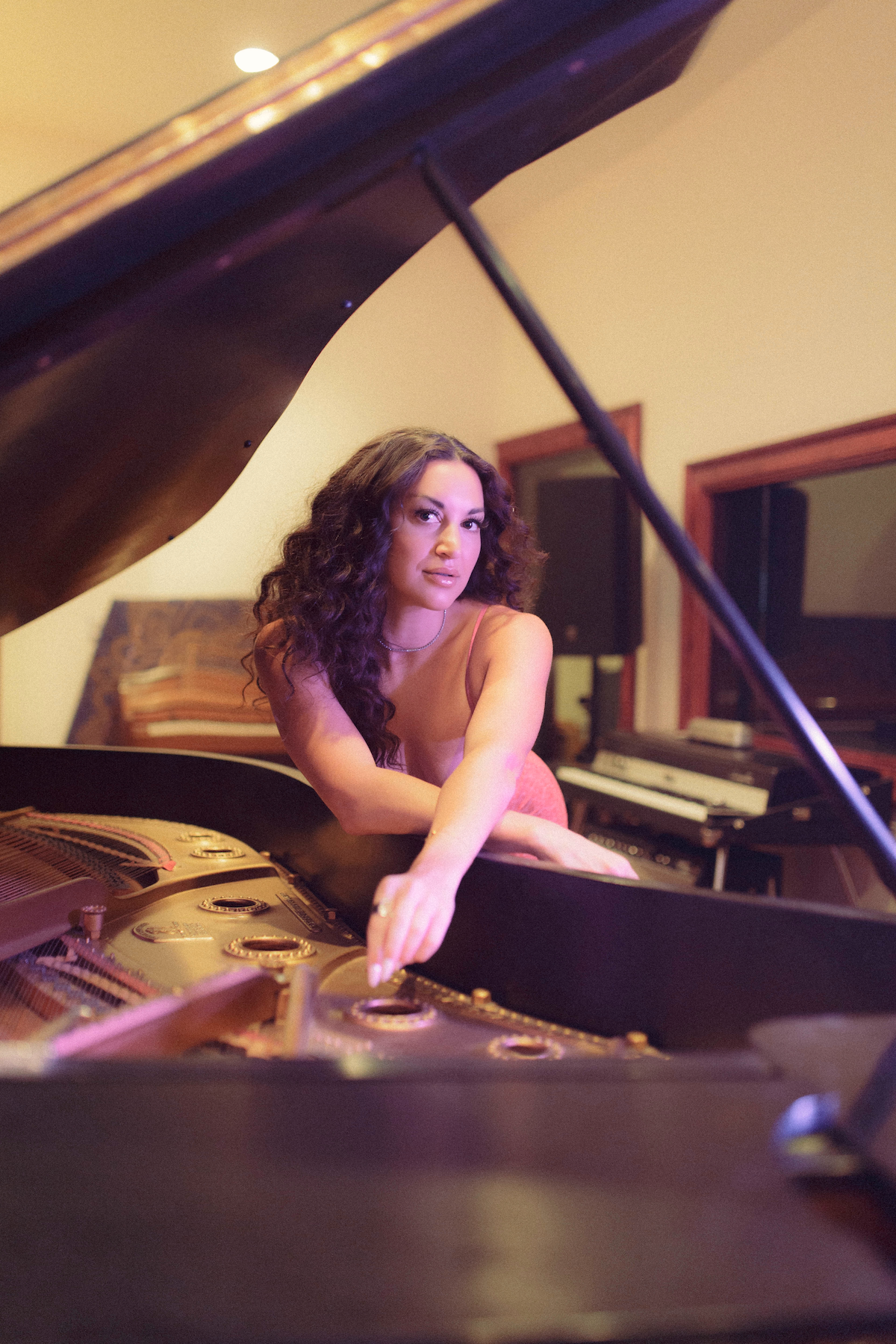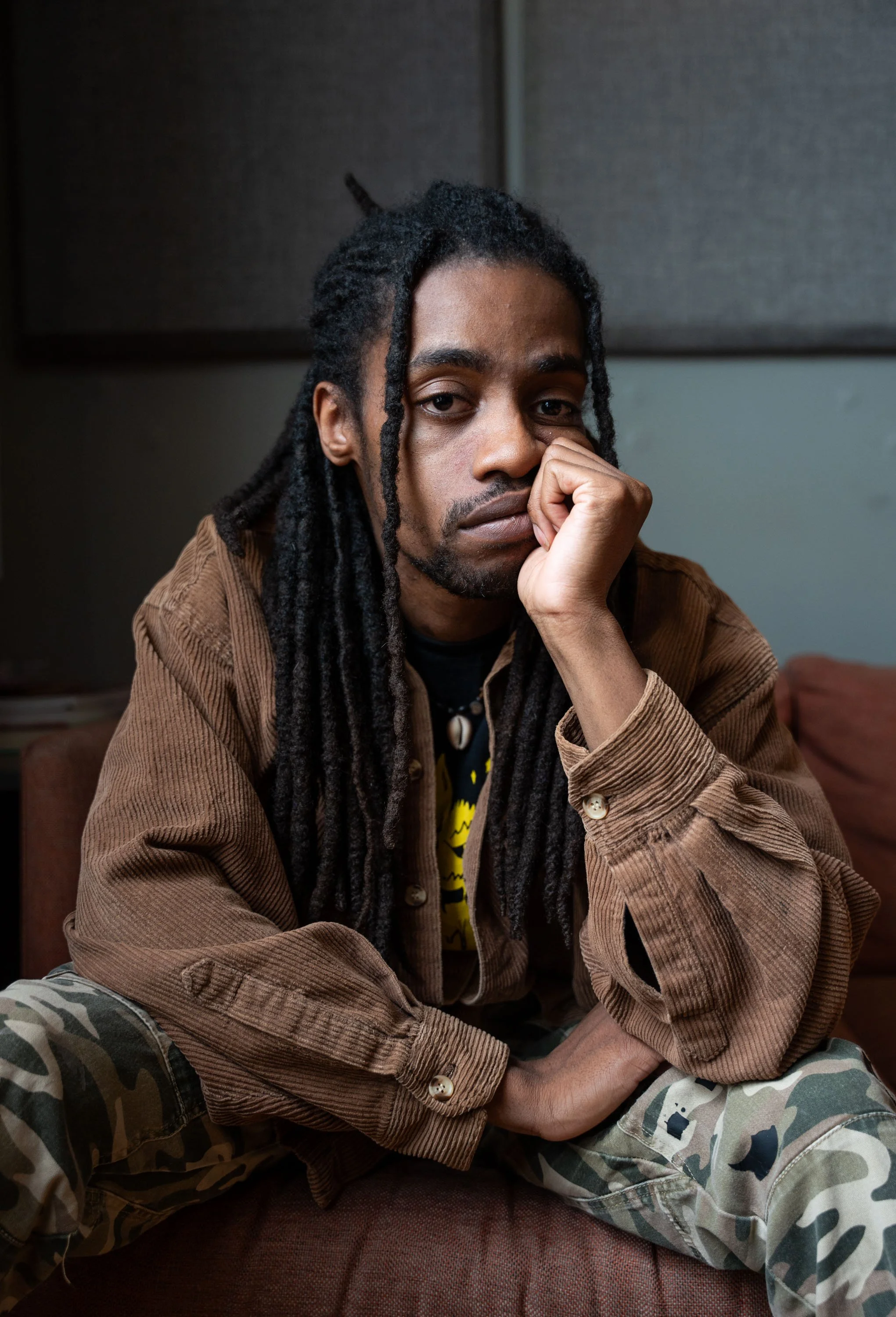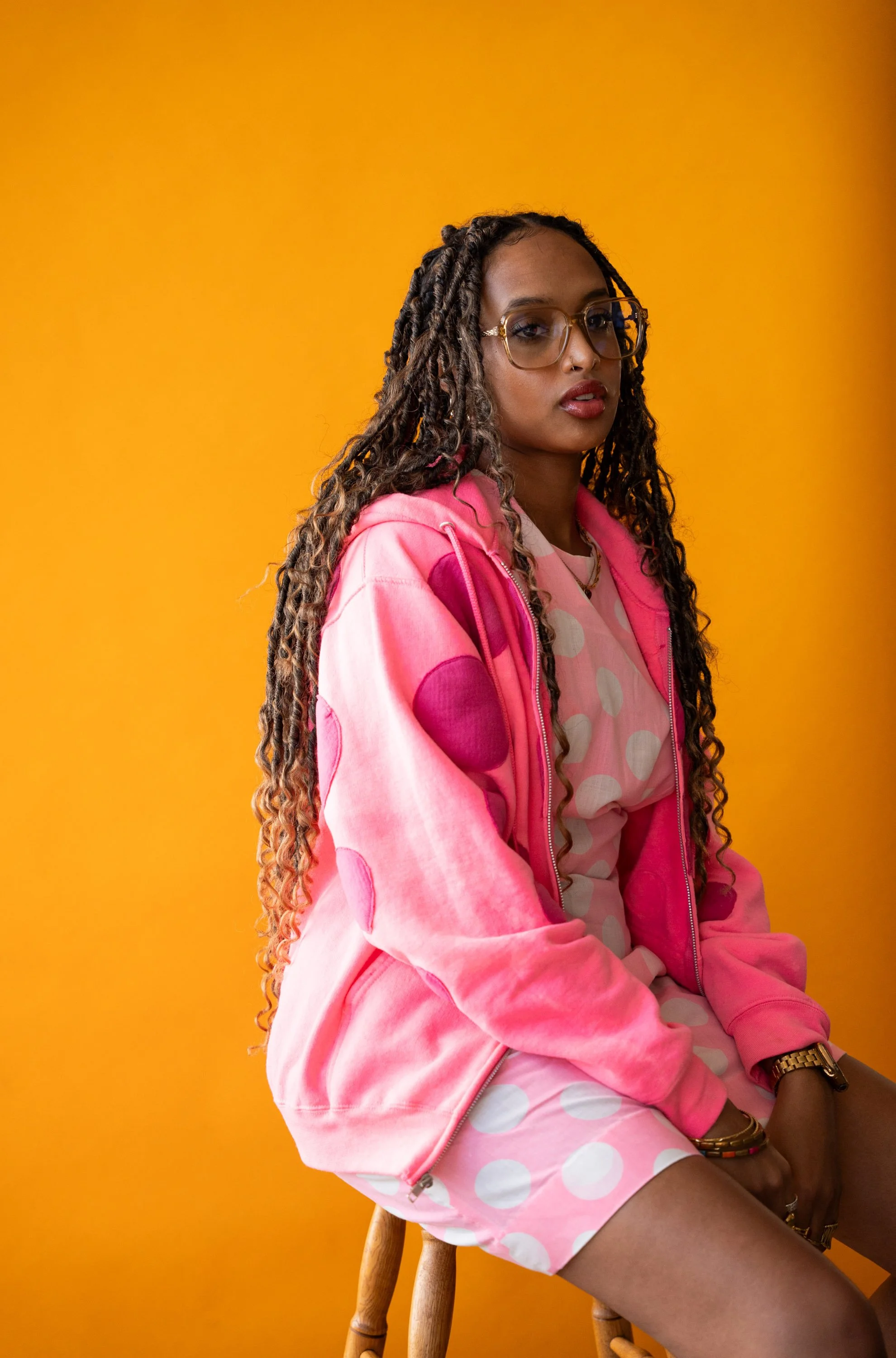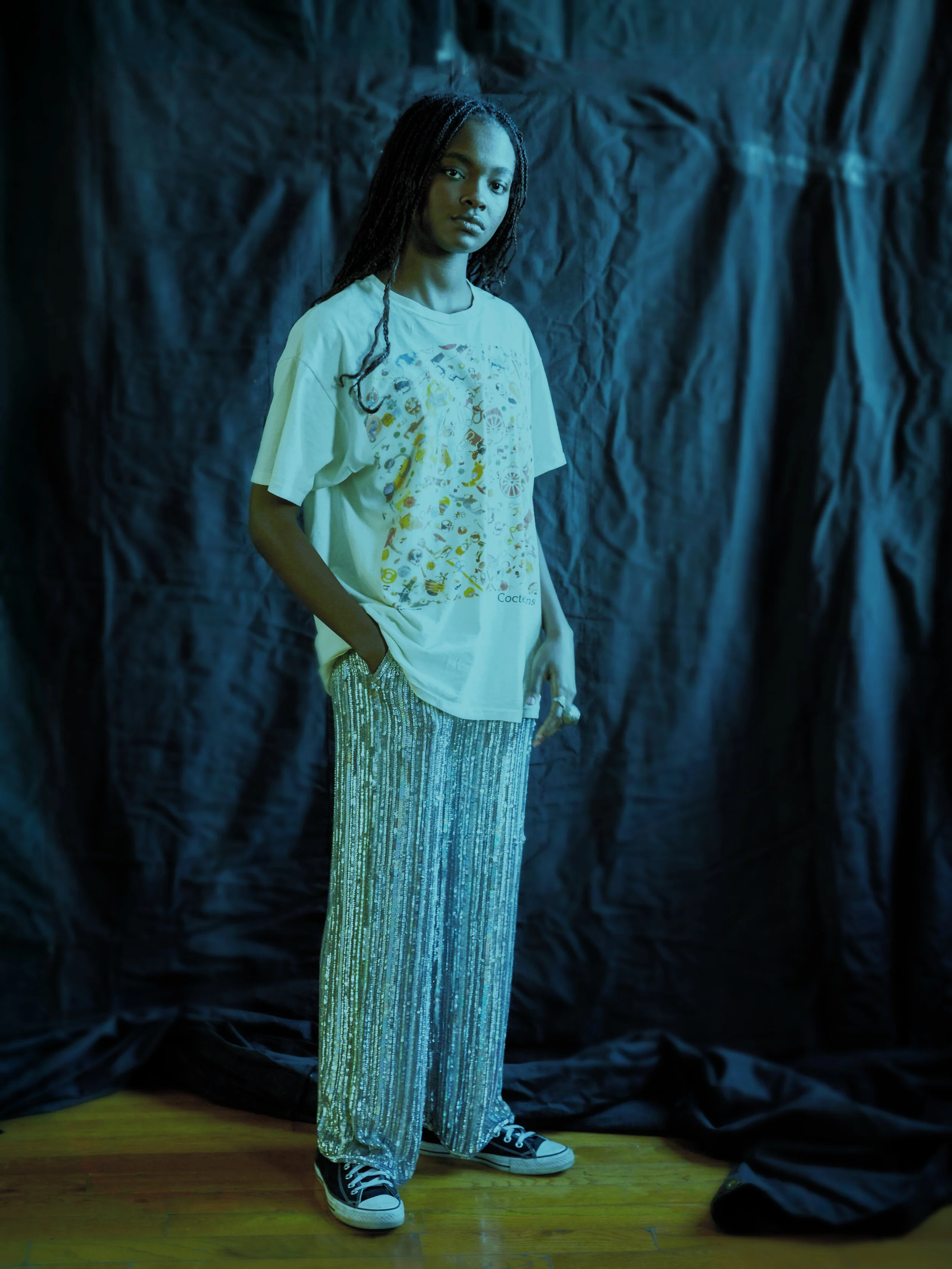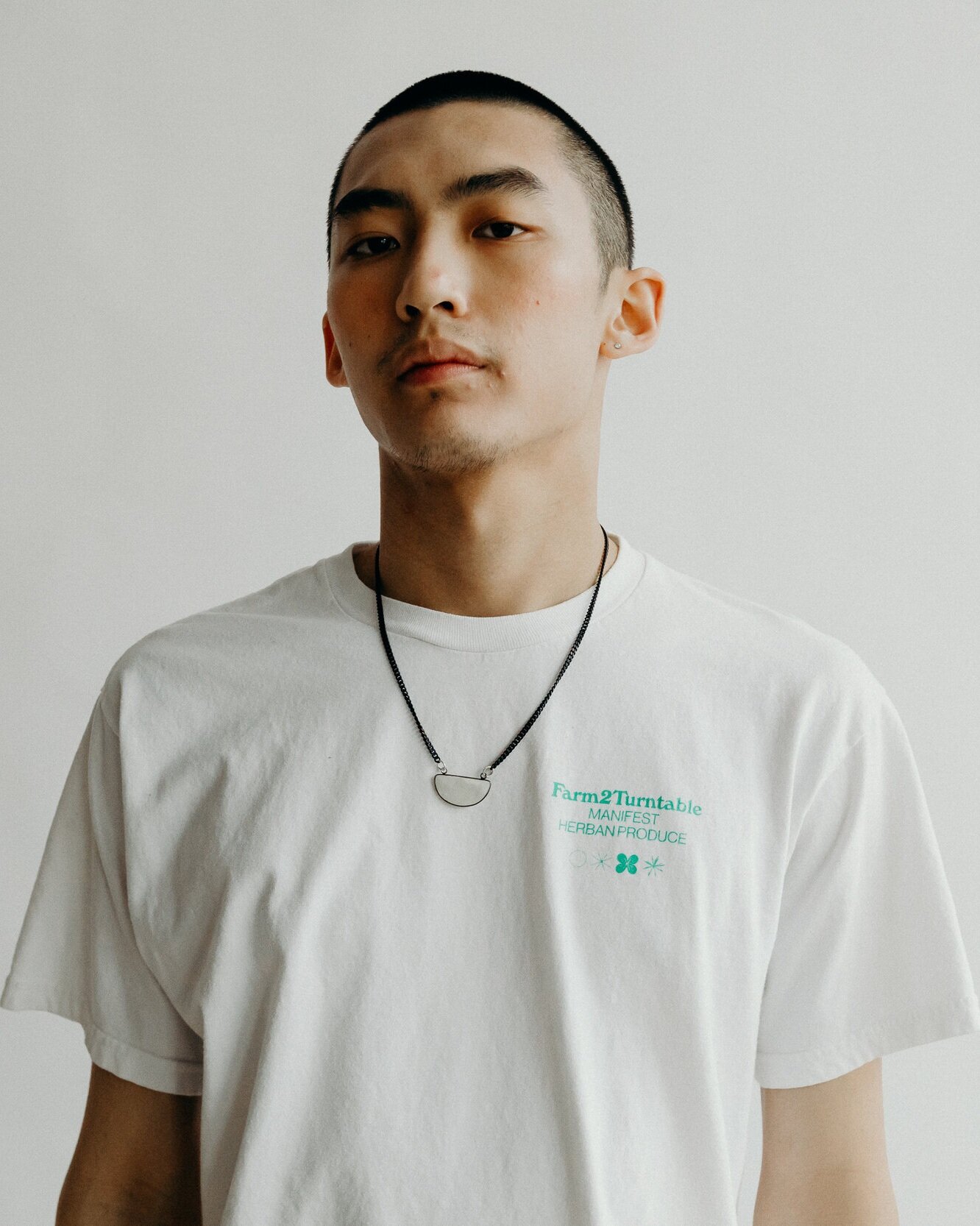Yomí & Her Muse
Photos by Michael Salisbury
On an early Monday afternoon, the Fairgrounds Coffee and Tea in Bucktown is crowded with customers. Nearly every table is occupied, leaving only the barstools closest to the counter available.
It’s hard to get comfortable in a place like this, especially when the rest of the restaurant’s menu reads like another language, and it becomes your responsibility to know which not-so-obvious yet cleverly-named coffee grind is a dark or light roast. Conversations are overpowered by the baristas’ sporadic yells, clinks of utensils tapping ceramic plates and fast-typing fingers on keyboards.
And yet, amidst all the noise, Yomí seems unbothered. The Chicago singer and harpist, who strolls through social media as That Harpist, sits across me. Her pink cotton candy hair – which compliments her sparkly oversized sweater – pops out from the shop’s patrons, who have cozied up to shades of gray.
A tiny, thin ring forms half of a halo around Yomí’s button nose and reflects underneath the fluorescent lights.
“My main intention is always healing – healing myself or healing other people. I feel like that’s where being a harpist really stands true. That’s why you’ll see us at a funeral or you’ll see us at a wedding – mostly because you need that sense of calm in both of those spaces.”
In Greek mythology, muses traveled with their harp, or lyre; that stringed instrument, though delicate and soft, soothed turbulent seas and protected fleets of soldiers from harm.
That same energy wraps around Yomí, who speaks in revelations and unveils a smile after epiphany. “The main thing for me is love and light.” Yomí lives in the present and is at peace.
But there’s another side to her that reveals a set of truths. And without this side, Yomí cannot fully exist.
“To be corny as possible, [the name Yomí] came to me as I was falling asleep in a dream. When I was in that state, I was really struggling to be Michele and everything that I wanted to do in the world. Here is me 100 percent. It’s like me showing you all my scars right off the bat.”
And if you turned back the clock a few years you wouldn’t even find Michele Barrett at a cafe like this. In fact, you wouldn’t find her anywhere in Chicago at all. She was in Philadelphia “fucking up” and “didn’t understand Chicago and how great the city was. I wanted to get a change of scenery.”
The 24-year-old Barrett pulls on her sweaters’ sleeves and stretches them over the tips of her fingers and brings her hands closer to her face. Barrett, originally from the west suburb of Oak Park, is a product of the Chicago Academy for the Arts and a classically trained harpist.
And those who grew up with Barrett knew she and her harp were inseparable.
“Then, high school comes, and that’s when you’re trying to find yourself. I’m not seeing myself in this classical instrument; I stepped out. I got really into visual arts. I switched to an arts high school. I majored in like painting and sculpture, and I just kind of let go of the harp for a bit and was too cool for it – at least in my head, I was too cool for it.”
But it was more than just thinking she was too cool for her harp. She was tired of playing second fiddle to it.
“If you’re a harpist in an orchestra, you’re waiting 62 measures, and you’re doing two measures of playing, and then you’re waiting another 100 measures. And you’re just waiting, and playing, and waiting, and playing. And I was like, ‘This is not fun. This is not the type of person I am.’ …
“My first few gigs, I made it very clear I wasn’t a classical harpist. I have my ripped jeans and my like sweaty sweatshirt, and I’m just here to play because it’s about the harp. I feel like my harp is like the frontman, and I’m like the one behind my harp. It’s her show.”
In Barrett’s mind, fleeing to Philly proved to be the only viable option to pull away from that identity; she already had an open invitation from her friends, who moved from Chicago to Philadelphia for school and in need of another roommate.
What she didn’t foresee was a tidal wave of unexpected challenges that would unravel a couple months after her big move.
A falling out with friends left Barrett without a home, and though at her most vulnerable, she still felt afraid to call her mother for help, “let me just deal with this on my own,” and “ended up to occupy my time at night, get into a graffiti gang and that was like my next four years in Philadelphia – just hanging out with that community and writing [graffiti].”
She called those artists her saviors. Without question, they welcomed her and provided her something to sleep on. All she had to do, really, was blend in and be down for the cause.
“It was who I was. It was who I was hanging out with. It was who I was dating.”
As she clung on to her new identity, she was unaware of her community’s fragile state. “And then you hit a point where this person is going to jail [and] this person is going to jail and everyone’s kind of gone.”
Again, Barrett found herself alone.
“That’s when I started missing my harp. … I call it my friend. It was always there to assist me and help me, and [it’s] something that I’m comfortable [with].”
Reuniting with her stringed instrument brought on a realization: Barrett and her harp didn’t fit into Philadelphia’s punk scene. “It was just like they were super supportive, but it was not the scene for me.” They were misplaced, and she knew it.
It was time for them to return home.
“I could have stayed there and been a completely different person – and maybe would have been OK. It was just a choice. I needed to put myself first. At the end of the day, no matter how much you love and how important everyone else is in your world, you have to be the No. 1. So, Philly showed me to do that.
“I was always putting myself second to whoever I loved – my best friend, whoever my boyfriend [was] – everyone was on a pedestal. It was like, ‘How do I serve you?’ Then it got to the point where I had nothing left to give, and then who are you? That was really the turning point. I could either stay here and figure it out in a place that had already been really, really difficult or I can have the safe haven of my mom’s house and take time before going back into adulthood.”
Embracing that admission gave birth to Yomí, leading Barrett into realm of serenity, femininity and wonderment.
Yomí formally introduced herself to the scene in 2017 with her mixtape, #ThatHarpist, but she reflected on an earlier project that marked her blossoming.
Love Songs for the Universe embodied the essence of Yomí, not only as a harpist but as a an artist, singer-songwriter and producer.
“The main idea for that was that so many people think that they need a tangible person/love romantic to understand, and live, and thrive ... but it was the idea that you can fill yourself up with the same love that someone else is putting into you and you can just hold on to that yourself.”
Yomí breathes in acceptance and exhales gratitude, leaving behind a trail of creative endeavors and crafting a sound influenced by a different set of classics – jazz, blues and R&B. Sprinkles of features and collaborations with other Chicago musicians like MFnMelo, Blake Davis, L.A. VanGogh on Soundcloud, as well as an EP Goodbye Autumn, are a peek into her evolution.
She isn’t quite sure what the future holds for her, but she knows that whatever it is, it’ll be good. If there’s anything that meditation taught her, it’s to exist in the moment. Everything, right now, is a work in progress, and every move matters.
“I’m always thinking about the people in my life – past, present and future – because manifesting is huge. I feel like I’m at a point in my life where everyone around me, I’ve like been currently dreaming of, and now they’re here. I want people who I can support and love, and have it be so open and flowing. I’d say it’s all real. It’s all here happening and hopefully, we’ll get there.”



